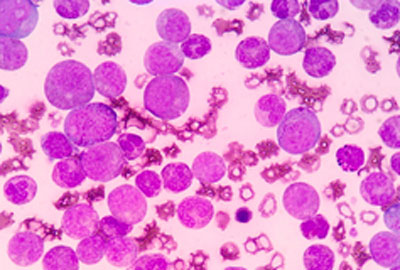MRC Technology & University of Lausanne collaborate on MALT1 inhibitors
Posted: 24 September 2015 | Victoria White
Disregulation of MALT1 is associated with some subsets of lymphoma suggesting that MALT1 could be a promising drug target for these types of cancer…


MRC Technology and the University of Lausanne are collaborating to find new drug treatments for diffuse large B cell lymphoma, the most common type of non-Hodgkin lymphoma.
Diffuse large B cell lymphoma is an aggressive lymphoma. It can arise in lymph nodes or outside of the lymphatic system, in the gastrointestinal tract, testes, thyroid, skin, breast, bone, or brain.
MALT1 (Mucosa-associated lymphoid tissue lymphoma translocation protein 1), an immunomodulatory enzyme, is required for the effective triggering of an immune response. However, disregulation of MALT1 is also associated with some subsets of lymphoma, including diffuse large B cell lymphoma, suggesting that MALT1 could be a promising drug target for these types of cancer.
Professor Margot Thome-Miazza, Associate Professor, University of Lausanne, said, “We have previously identified a novel way of regulating the catalytic activity of MALT1 via a protein modification called ubiquitination. We are now working with MRC Technology to harness this regulatory mechanism and discover small molecule inhibitors that specifically interfere with the ubiquitin-linked form of MALT1.”
MALT1 inhibitors may have wider therapeutic applications
Justin Bryans, Director, Drug Discovery, MRC Technology, said, “It is encouraging that we can build on the work of the University of Lausanne and bring new treatments to patients. These drugs could potentially also treat other types of lymphoma associated with MALT1 over-activity, for example MALT lymphoma and Mantle Cell lymphoma.”
MALT1 inhibitors may also have wider therapeutic applications owing to MALT1’s role in immune regulation, and could potentially be used to limit overactive immune reactions in autoimmune diseases.
Related topics
Drug Discovery
Related organisations
MRC Technology, University of Lausanne
Related people
Justin Bryans, Prof Margot Thome-Miazza








